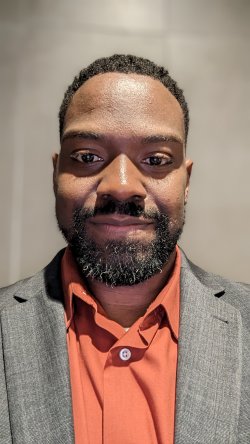
View Profile Page

Clewiston Challenger
Assistant Professor, Counseling, College for Community Health
- Email:
- challengerc@montclair.edu
- vCard:
- Download vCard
Profile
Dr. Challenger is a former school counselor with more than 8 years working in schools located in urban communities. Dr. Challenger received his undergraduate degree (2003) and master’s degree (2008) from UConn where his master’s was in Educational Psychology with a focus in school counseling. While working on his master’s degree, Dr. Challenger completed his clinical hours as a pre-service school counselor in the Hartford Public Schools system. He then moved to New York City where he worked for several years in the NYC Charter Schools system as a middle and high school counselor in The Bronx and in Harlem. Although Dr. Challenger has experiences as a former school counselor, who worked in public, private/boarding, and alternative schools, he views himself as a urban school counselor and prepares students to work in urban communities with diverse individuals and families.
After his stint in NYC, Dr. Challenger pursued his doctoral degree at Penn State University receiving his PhD in counselor education. At Penn State he refined his research interests to focus on the high school-to-college transition, college adjustment, sense of belonging and inclusion, self-efficacy, student-athletes (of color), boys (of color), and academic buoyancy. Dr. Challenger examines these factors to understand how they impact student retention, persistence, academic motivation and achievement; particularly at predominantly White institutions (PWIs). Recently Dr. Challenger has looked at the effects of hazing behaviors and a hazing culture and its impact on how students adjust to school/college adjustment, perceive their mental health, and effects on retention and graduation rates.
Dr. Challenger has over 17 years working with children and adolescents in educational, psychiatric, sports, fitness, and recreational settings. He is a former youth, high school, and college football coach. In address, he has experiences as a former personal trainer and sports performance trainer, and as a head counselor at a boy’s overnight sports camp in the Berkshires (MA). Dr. Challenger has used his personal experiences as a Black male and as a former student-athlete, coach, teacher, counselor, and mentor to guide his research interest, his instruction, how he trains and prepares students, and his advising. Dr. Challenger teaches his courses from a constructivist learning approach where knowledge and personal/professional experiences are shared amongst students and the instructor to enhance the creative and collaborative process rather than the traditional hierarchical model of instruction.
Currently Dr. Challenger is part of several research teams that look at issues in school settings that impact school age children and how school counselors can support them. One research team involves multiple institution where we are in the process of developing a scale that measure hazing behavior and culture and how students in sports, clubs, and organization perceive its impact on their mental health, level of participation, sense of belonging, and mental health. Another multi-institutional collaboration is with colleagues in the special education discipline as we examine how school counselors and transition specialist can combine their efforts to implement an college and career readiness curriculum to offer effective postsecondary transition planning for students with disabilities.
Additionally, Dr. Challenger is part of another multi-institutional team conducting a qualitative study looking at how educators perceive their level of comfort and their ability to navigate conversations around race, culture, and ethnic identity in their classrooms with students of color. Last, Dr. Challenger has partnered with his colleague here at Montclair in the Kinesiology Department to look at mental health screening for high school student-athletes to track their perceptions of their mental health at all phases of play (preseason, in-season, postseason) and even if the student-athlete incurs and injury and is in recovery.
Specialization
Dr. Challenger is a former school counselor (New York City, NY and Hartford, CT) specializing in urban school counseling, urban schools, and communities of color. His research interests focus on school adjustment and motivation and how those factors influence student achievement, persistence, retention, sense of belonging, perception of self-efficacy, academic buoyancy, and institutional attachment. Dr. Challenger also focuses on the impacts of hazing behaviors and attitudes along with the overall hazing culture in athletics, clubs and organizations, along with Greek Life and its impact on student mental health and school involvement. In addition, Dr. Challenger particularly connects his research to better understanding how K-12 boys, boys of color, student-athletes, and college student-athletes of color who attend predominantly White institutions (PWI) of higher education perceive their adjustment, attachment, and belonging to their school or institution.
Research Interests:
•High school-to-college transition
•College Adjustment
•High school adjustment
•Sense of Belonging, Inclusion
•Academic Buoyancy
•Self-Efficacy
•Student-Athletes/Student-Athletes of Color
•Boys (Boys of color)
•Institutional Attachment
•Mental Health in K-12 students
•Hazing behaviors and hazing culture
•Urban school counseling
Resume/CV
Office Hours
Spring
- Tuesday
- 1:00 pm - 3:00 pm
- Office hours can be in person or virtual. Also by appointment.